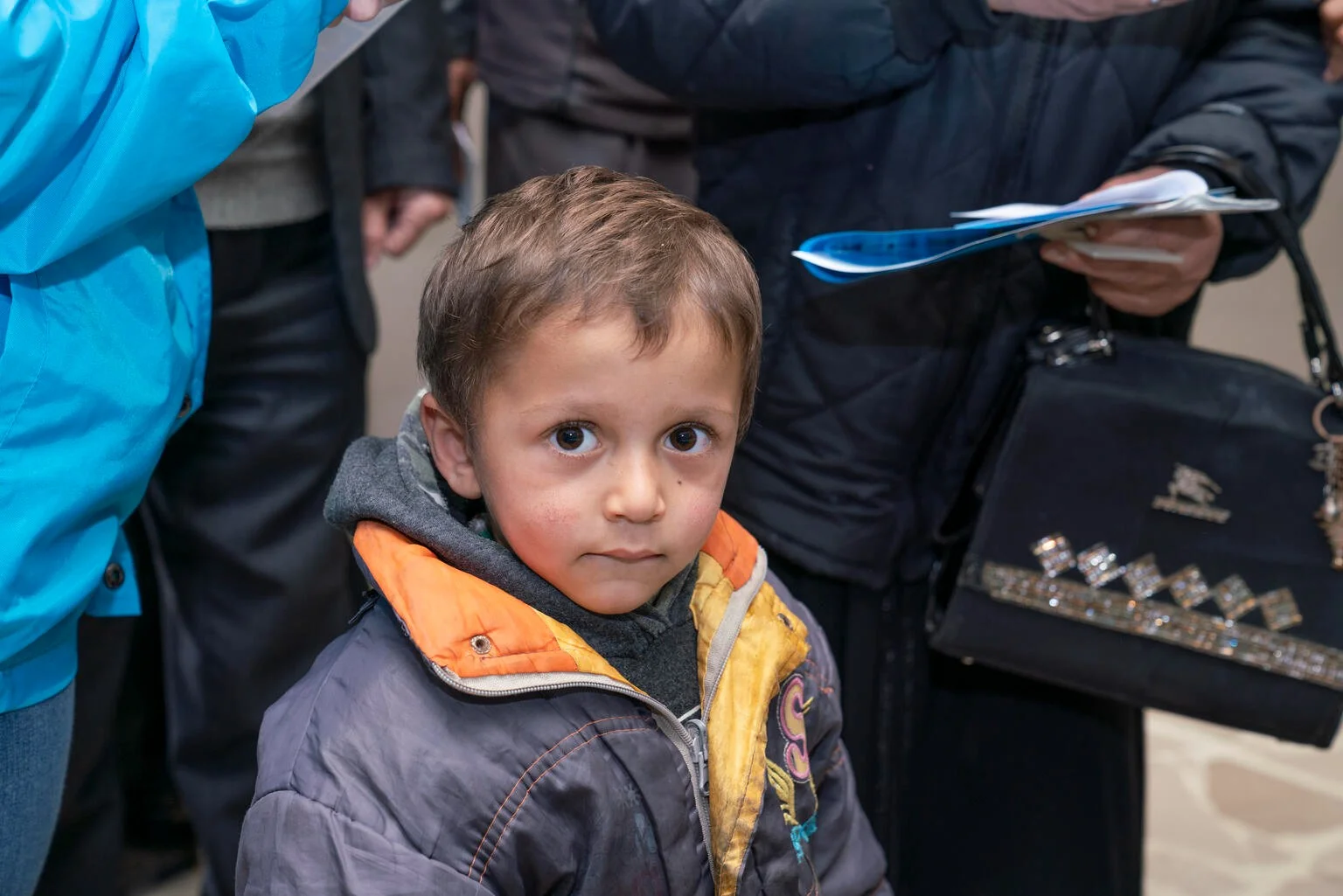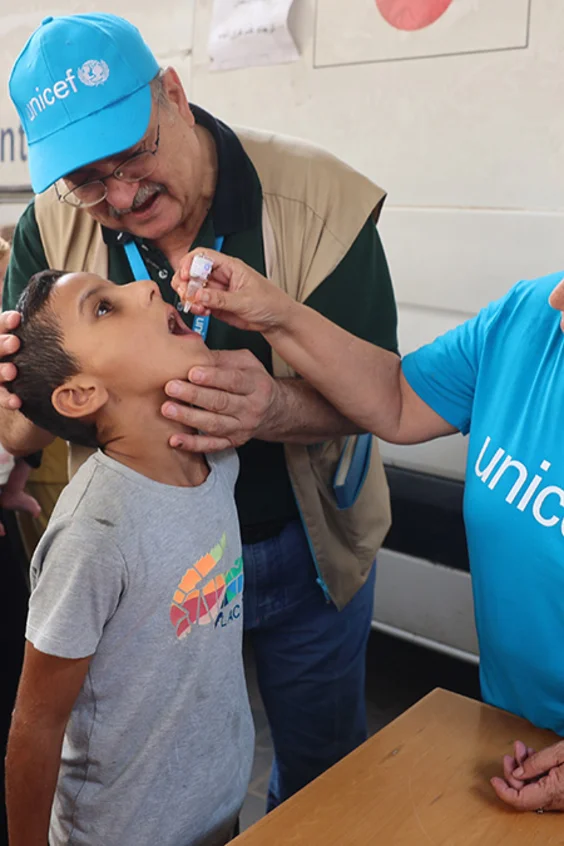A measles and polio vaccination campaign will be launched tomorrow across northwest Syria to protect some 800,000 children under five years from the two potentially deadly but preventable diseases.
The vaccination drive, supported by the World Health Organization (WHO), the Vaccine Alliance (GAVI) and UNICEF, in partnership with local health NGO partners, and the Syria Immunization Group is being launched just over two months since the earthquakes that devastated parts of Syria and Türkiye.
“Protecting the youngest and most vulnerable children from potential disease outbreaks will save lives," said UNICEF Regional Director for the Middle East and North Africa, Adele Khodr. "We know from years of experience that vaccines work.”
Raising immunization levels among children is a priority in an area where the earthquakes partially or totally destroyed 67 health facilities following 12 years of conflict that severely weakened the health system. Close to 100,000 people have also been newly displaced by the earthquakes and are living in overcrowded camps, which have sub-standard water, sanitation and hygiene systems.
“The earthquakes have already disrupted so many lives and livelihoods, but by acting once again on our regional vision of Health for All by All with our partners and vaccinating children under the age of five, we can prevent the disaster from having an even greater impact,” said Dr Ahmed Al-Mandhari, WHO Regional Director for the Eastern Mediterranean.
The measles and polio vaccine will target children in the 12 most earthquake-impacted and at-risk districts across Idlib and northern Aleppo. Measles and polio can spread fast, with measles potentially causing serious respiratory illness, which can result in death and polio leading to paralysis, both of which can result in death.
“It is critical to continue these immunization efforts, especially in such humanitarian contexts. This work follows the cholera vaccination campaign that reached nearly 1.7 million people last month,” added Khodr.
Heading northwest Syria operations run from the WHO Gaziantep office in Türkiye, Dr Idris Elrasheed said he was “in awe of the 3,000 health workers who will work in the community in the coming 10 days despite being themselves impacted by the earthquakes. They have lost relatives and homes, and yet remain fully committed to serving their communities -- this is why I have nothing but respect for their humanity and professionalism.”






